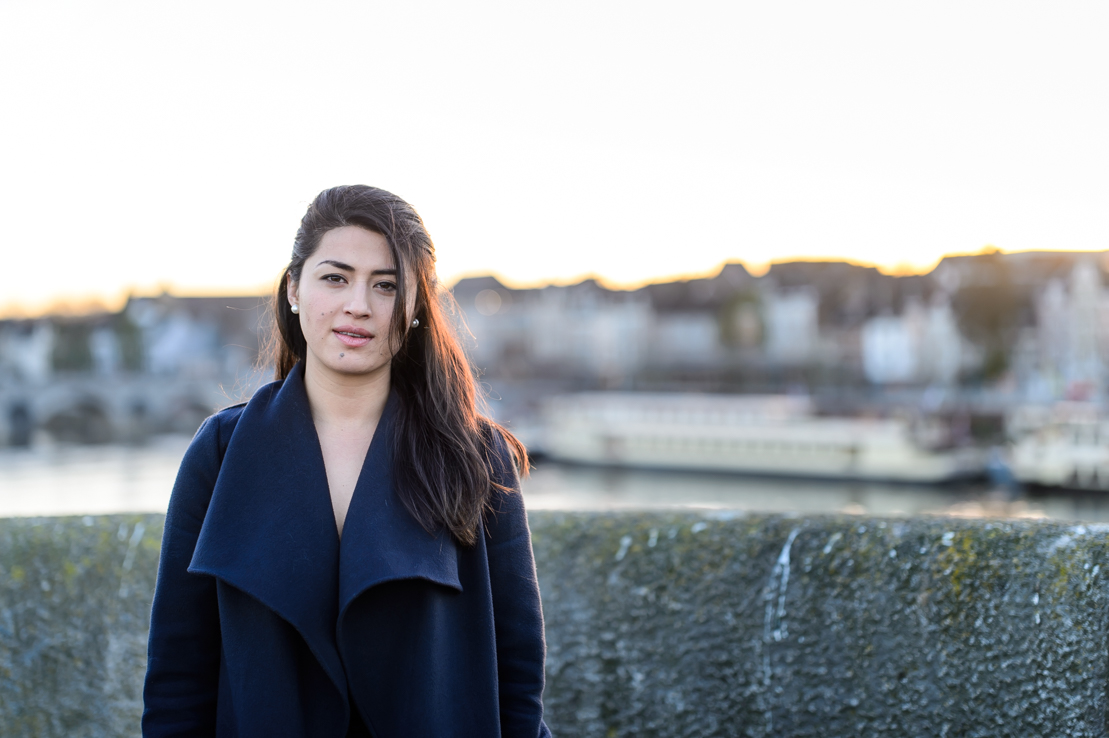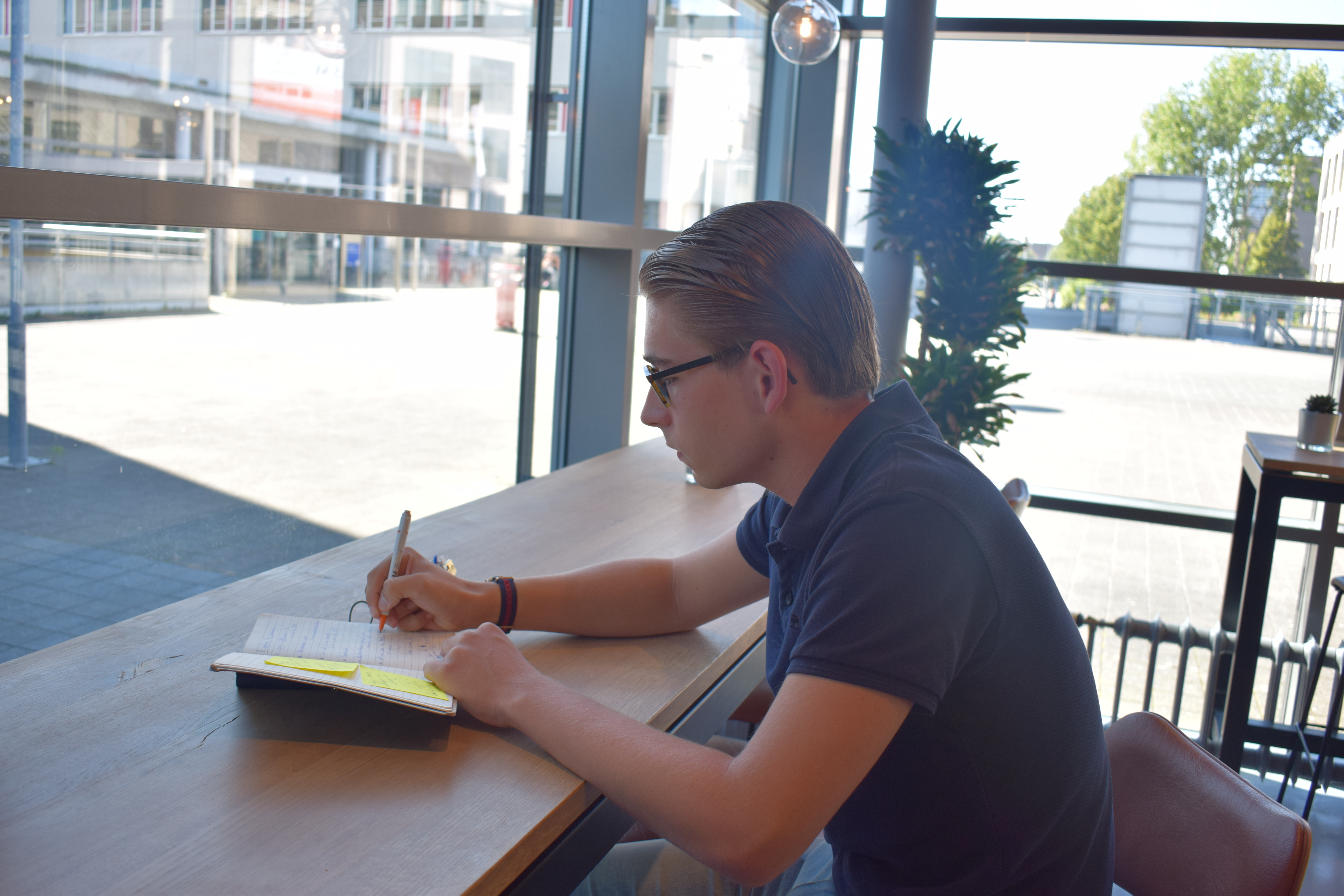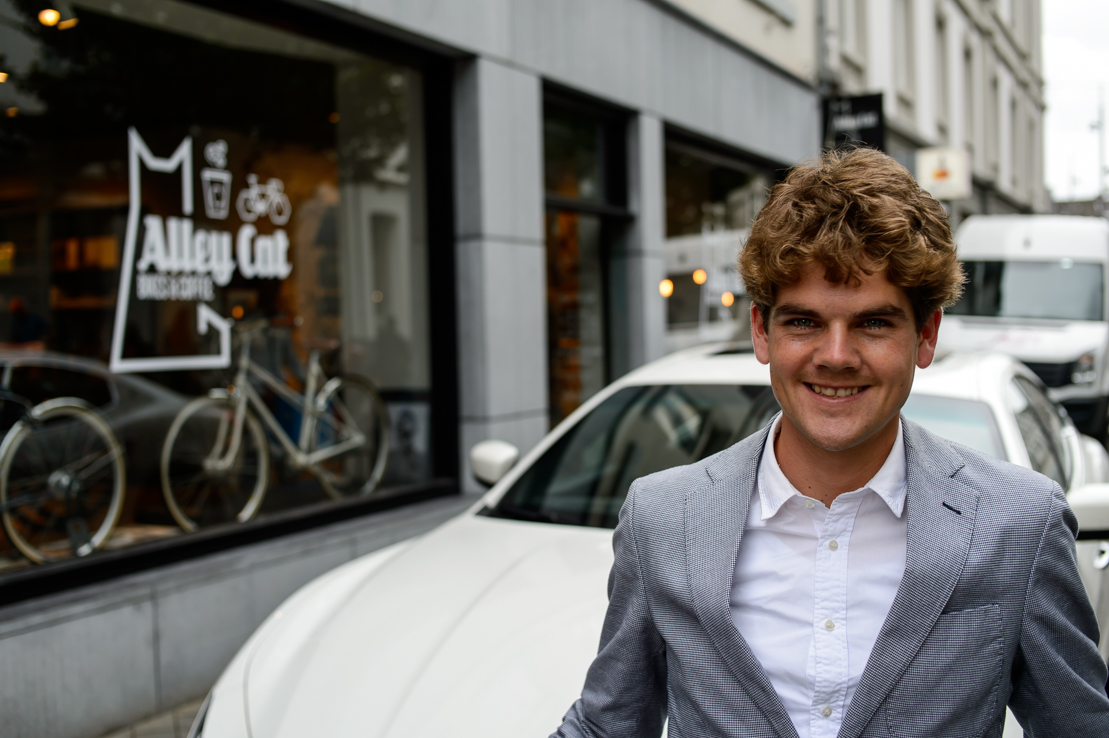Samina Ansari, a Woman With a Mission

Samina Ansari is a 24-year-old Globalisation & Law Masters student at Maastricht University. Currently, she is in Kabul where she is a legal trainee at The Asia Foundation. Before she left for Afghanistan, we did an interview with her about her life, activities, and interest in women and refugee rights.
Who is Samina?
My name is Samina Ansari, I am 24 years old and currently studying the Master Globalisation & Law at Maastricht University. I was born in Afghanistan but my family moved to Pakistan during the Taliban War in 1995. We lived in Peshawar for five years which was, and remains, the largest populated city by Afghan refugees. When the conflict in Afghanistan became much, much worse we realised that the Taliban was there to stay so we migrated to Norway for a better life.
I have a degree in Cyber Security Law from the University of Oslo, Faculty of Law. It’s a very new area but a very valuable one. Technology is always faster than law; law comes often when something has already happened so mixing technology and law is very interesting. After that, I did internships with the UN for a full year and then I came here.

How did you end up in Maastricht?
It was partly by choice, and partly a coincidence. I wanted to study international law, not only focusing on state interaction but also on organisations and corporations and how they interact with each other in a globalised world. They have a very good programme here in Maastricht, the Globalisation Law master. But studying international law is a bit depressing because it’s an instrument without teeth.Then again, international law is about principles and values of fundamental rights given to individuals and states. It is something that is often forgotten by the international community.
Why the interest in human rights?
I come from a family with a number of children. We all care about Afghanistan deeply. Not only because our roots are there, but also because we brought Afghanistan with us to Norway. We often talk about the issues and conflict there. It wasn’t only about state intervention or geopolitics. It’s often rooted back to human right violations. My mother was an amazing role model to all of us. She did her entire schooling all over again in Norway. Working on human rights is often helping the secondary. In Afghanistan and also other parts of the world, women are seen as the secondary. My mother, however, a woman with dignity, had achieved a lot by starting all over again and succeeding in many ways. She manifests human being’s true value, that became my main inspiration. Women are capable of what men are capable of as long as they are given the platform. Sometimes women are capable of even more!
Why refugees?
First of all, I was a refugee myself in Pakistan. In Norway, we became migrants but I could still feel the tension of always being the girl that came from overseas. Norwegians were warm with me and my family but seemed uninformed. Why are you here when you’re born in a different country? I felt that in my first years in Norway. I have this feeling of commonness with refugees, that I have felt it before and know other people might feel as well. Being a refugee is hard enough but sometimes refugees suffer multiple layers of violations, like being a woman or a child suffering from human rights abuses in the process of being a refugee. We have to help these people. From a globalised perspective, I think history has proven that the world is united so either we help them now or we don’t, but suffer with them at a later point. Why hide the cat in the hat and pretend it is not there?
What do you do?
Apart from writing blog posts about the refugee crisis, I am also a part of a group of students who are working on opening a refugee law clinic at the Law Faculty. I’m also working closely with a student refugee that has an organisation called Not Just a Number. What he’s focusing on is educating the Dutch people on what it is to be a refugee. I also recently did a fundraising lunch at the Soup Solo. We raised money for women at the Zaatari refugee camp, which is the largest refugee camp in Jordan. It was for the HeforShe campaign. We raised a little bit over €425,- to provide 50 women skills training within the Zaatari camp to fight violence against women inside the camp. It also gives them a reason to get out of their tent and participate in the community.
Where do you see yourself in 5 years?
I think Norway, actually. It’s all about the platform you are a part of. You can still be an individual, but being part of a good platform makes you a stronger individual. Having Norway as a platform can be a great privilege in helping others. I will continue working on women’s empowerment and refugee-related issues. I want to continue reaching out where I can and I believe anyone can reach out, wherever they are, no excuses.
Do you feel Afghan?
I get this question a lot. Even though I have bits and pieces of my heart here and there I don’t belong to any country. I am just Samina.
After the interview:
Samina recently took a trip to Tel-Aviv and Jerusalem where she met with the human rights clinic at Tel-Aviv University to learn from their refugee-related research. One of the issues she learned was that Israeli territories are facing the humanitarian crisis as much as the rest of the world. The refugees they are faced with are Africans fleeing from the Ethiopian and Eritrean conflict. Many of the Eritrean refugees are being deported to a third country that is not their native country. The International Organization for Immigration (IOM) has heavily criticized these deportations, according to the United Nations refugee convention, asylum seekers cannot be sent to any country unless there is an agreement with that country that safeguards their rights and welfare. Currently, Samina is in Kabul, Afghanistan where she is a legal trainee at The Asia Foundation. Working with refugee issues is very close to her heart, and she is seeking a more sustainable solution to this crisis.
“Making the home countries of these refugees safer is the way to go, no one wants to leave their home unless they have to”
She is working on improving the rule of law through legal education in Afghanistan, both areas in the country need more attention.
“I am still a student, and I am learning every day. Afghanistan is a great teacher on many of the issues the international community is faced with today”
About the author

I'm Karissa Atienza, a Filipino public policy master’s student at Maastricht University/United Nations University. This is my fourth year in Maastricht as I also did my Bachelors here on European Studies. I have been a social media reporter for Maastricht University since 2015. When not busy with academic or university work, I enjoy eating, travelling and photography. Any ideas, comments or recommendations for our social media channels? Send me a message!
Other blogs:
Also read
-
Law Ball, Ambassador Lecture Series, Opening of the Academic year… We sat down with Costas Georgiades, a 23-year-old law student from Cyprus, who is the epitome of student involvement. We discussed the different projects he is involved with and what led him to where he is now. Read on to find out...
-
Maarten Butink, a 21 year-old Health Sciences student who chose to focus on the Policy, Management and Evaluation of Health Care specialisation, sat with us to discuss his position as student assessor. He shared what got him where he is now and what he hopes to accomplish thanks to his new position...
-
Keir Plaice, a former semi-professional cyclist and 3rd year Bachelor Arts and Culture student, is embarking on a cycling ride of a lifetime. He is riding the route of the original Tour de France of 1903 and documenting his experience in his Le Grand Tour column in the cycling magazine Soigneur...


